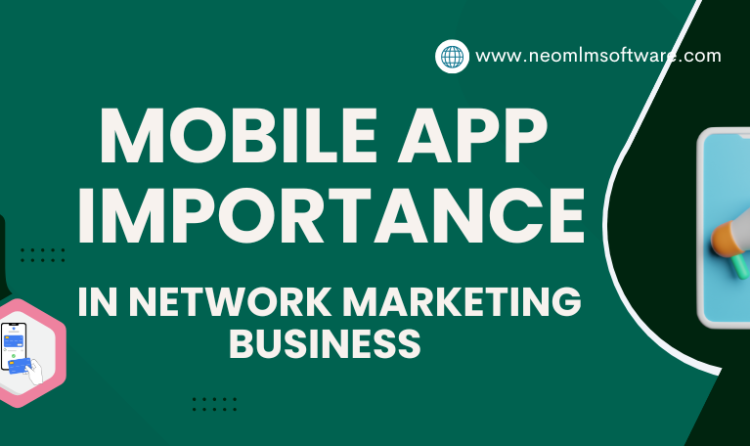MLM Software vs. Traditional Business Tools: Advantages and Differences
The debate between MLM (Multi-Level Marketing) software and traditional business tools has become increasingly relevant, as technology reshapes the way we conduct business.
We will delve into the advantages and differences between MLM software and traditional business tools, with a special focus on how Network Marketing Software can serve as a game-changer.
The Rise of MLM Software:
Multi-level marketing has witnessed a sudden increase in popularity due to its unique structure that leverages a network of distributors to sell products or services.
To manage the complexity of MLM structures, specialized MLM software has emerged as a powerful tool.
MLM software streamlines various aspects of MLM businesses, providing automation, scalability, and efficiency that traditional tools struggle to match.
Advantages of MLM Software:
1. Automated Tracking and Commissions:
MLM software excels in automating the tracking of sales, commissions, and downline activities. This automation ensures accuracy and transparency in compensating distributors based on their performance. With MLM business owners need to spend less time on manual calculations and more focus on strategic business activities.
2. Scalability and Global Reach:
MLM businesses often expand rapidly, requiring tools that can scale alongside this growth. MLM software is designed to handle a large volume of transactions and users, making it a valuable asset for businesses with global aspirations. This scalability ensures that business owners can expand their network without worrying about system limitations.
Centralized Communication and Collaboration: Effective communication is crucial in MLM, where teamwork and collaboration drive success. MLM software provides a centralized platform for communication, fostering collaboration among team members. Features such as real-time messaging and document sharing contribute to a more cohesive and connected network.
3. Real-time Analytics:
MLM software offers real-time analytics and reporting, allowing businesses to track sales performance, monitor the growth of their network, and identify trends. This data-driven approach enables quicker decision-making and adaptation to market changes.
4. Efficient Compensation Plans:
MLM compensation plans can be complex, involving various levels and structures. MLM software is designed to handle these intricacies efficiently, ensuring accurate and timely payouts to distributors based on their sales and recruitment efforts.
Traditional Business Tools: The Challenges and Limitations:
While traditional business tools have been the backbone of many enterprises, they often face challenges when applied to the dynamic structure of MLM businesses.
1. Manual Tracking and Reporting:
Traditional tools often rely on manual tracking and reporting, which can be time-consuming and prone to errors.
2. Limited Scalability:
Many traditional tools struggle to scale alongside rapidly growing MLM businesses.
3. Fragmented Communication:
Traditional tools often lack integrated communication features, leading to fragmented communication channels. In MLM, where team cohesion is paramount, this fragmented approach can impede collaboration and hinder the overall success of the business.
Advantages of Traditional Business Tools:
1. Proven Track Record:
Traditional business tools have a long history of successful implementation across various industries. They have been refined over time, and their effectiveness is well-documented, providing a sense of reliability to businesses.
2. Customization:
Businesses can choose from a variety of traditional tools that best suit their needs. Whether it’s accounting software tailored to their industry or a CRM system that aligns with their customer management strategy, customization options abound.
3. Broad Applicability:
Traditional business tools are not limited to specific models or structures. They can be adapted for use in various industries and business types, making them versatile and applicable across diverse scenarios.
4. Integration Capabilities:
Many traditional business tools offer seamless integration with other software and platforms. This integration facilitates a cohesive business ecosystem where different tools can work together, enhancing overall efficiency.
5. Cost-Effective for Small Businesses:
For smaller businesses with simpler structures, traditional tools can often be more cost-effective. They may not require the complexity and features provided by MLM software, making traditional tools a pragmatic choice for certain enterprises.
Conclusion:
Choosing between MLM software and traditional business tools is a decision that hinges on the specific needs and structure of a business. MLM software offers comprehensive solutions tailored to the complexities of network marketing, providing automation, scalability, and real-time analytics. On the other hand, traditional business tools bring a proven track record, customization options, and cost-effectiveness for simpler business models.
Ultimately, the decision should be guided by the nature of the business, its growth trajectory, and the level of automation required.
Related:
1. The Evolution of MLM Software
2. Customizing MLM Software for Different Compensation Plans
3. Optimizing Sales and Downline Management with MLM Software
4. Choosing the Right MLM Software: Key Features and Considerations






